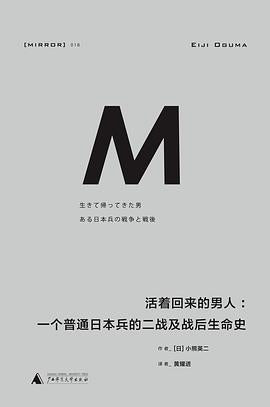WULOLIFE
《活着回来的男人》作者: [日] 小熊英二 出版社: 广西师范大学出版社
《活着回来的男人》作者: [日] 小熊英二 出版社: 广西师范大学出版社
Couldn't load pickup availability
Description
内容简介 · · · · · ·
《活着回来的男人》是第一部以普通人的视角记述二战前后日本生活史的著作。
书中主人公小熊谦二(作者的父亲),出生于1925年,十九岁被征兵送往中国东北,后遭苏联拘留于战俘营,在严酷的西伯利亚劳动了三年。活着返回日本后,谦二在不断人生最失落的光景在疗养所中孤独地度过。失去半边肺叶的谦二,以三十岁“高龄”重归社会,幸而赶上日本经济高速增长的浪潮,得以从“下层的下层”爬到“下层的中层”。升为银发族后,他甚至与身在中国延边的“原朝鲜日本兵”吴雄根共同成为原告,向日本政府发起战后诉讼赔的视角记录了自己的父亲作为一个普通日本兵的生命轨迹,同时融入同时期的经济、政策、法制等状况。
作者简介 · · · · · ·
小熊英二(Eiji Okuma)
1962現為慶應義塾大學總合政策學部教授,專攻歷史社會學・相關社會科學。19 96年以《単一民族神話の起源:〈日本人〉の自画像の系譜》獲得三得利學藝賞;2003年以《「民主」と「愛国」:戦後日本のナショナリズムと公共性》獲得每日出版文化賞、大佛次郎論壇賞;2013年以《社会を変えるには》獲得中央公論社新書大賞。最新著作《活著回來的男人:一個普通日本兵的二戰及戰後生命史》獲得2015年新潮社小林秀雄賞。其他重要著作包括《1968:若者たちの叛乱とその背景〈上/下〉》、《市民と武装 :アメリカ合衆国における戦争と銃規制》、《清水幾太郎:ある戦後知識人の軌跡》 。他執導的311福島核災議題紀錄片《首相官邸前的人們》已於2015年公開上映。
